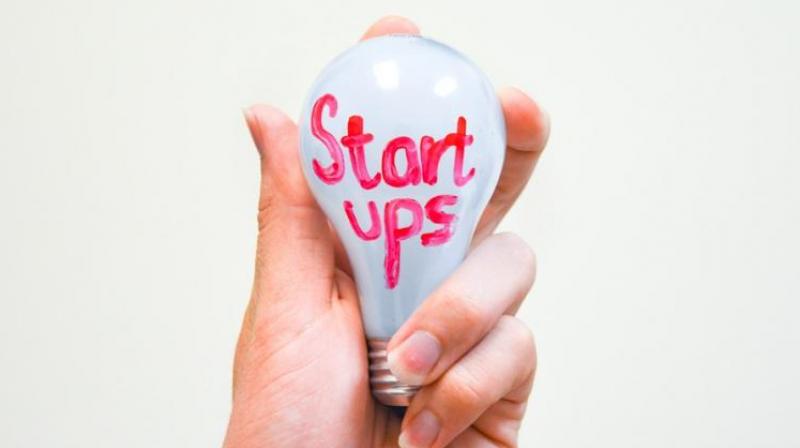Work flexibility a must to bridge gender gap
Only 14 per cent women are founders in start-up ecosystem.

Hyderabad: The start-up ecosystem in India has a long way to go to close the gender ratio gap.
Despite India being one of the preferred start-up destinations in Asia, only 14 per cent of start-up founders are female.
It is evident from the allegations of misconduct that have surfaced in start-ups like Uber, Flipk-art and Tinder, which face lawsuits, that if a start-up fails to emphasise diversity from the very beginning, it is going to be harder down the road.
Currently, of the 6,300 start-ups recognised by Startup India, only 2,488 have women as founders, directors, or partners.
Some start-up entrepreneurs in Hyderabad are hesitant to hire women, especially if they are getting married soon or are pregnant - something that is not confined to start-ups.
A city-based male entrepreneur speaking on condition of anonymity, said, “We don’t differentiate much between genders and respect each one for their skills, as we grow bigger when the individual dependency kicks in. We probably will look into such policies around pregnant women. It’s not easy for a company to handle such expenses unless they have good cash flows as it becomes a burden on the company.” Nothing betrays the bias as much as this statement does.
Start-ups constantly harp on the cost to the company if they have to employ someone to do the work of a woman on maternity leave. The fact is that start-ups or any other company must factor in these costs at the beginning if they are an equal opportunity employer. And not make such feeble excuses.
There is a perception that pregnant women will wilt under the pressure of work, though it is rarely borne out in fact. An entrepreneur again on condition of anonymity said, “In case of pregnant women, we surely might hesitate since we understand that it’s not easy for them during their pregnancy and subjecting them to the rigor and stress in a start-up is not the best thing for them even in terms of health. Maternity leave is also not realistic, at least in the early stage of start-ups given that we have one resource max for each role.”
Deepthi Ravula, CEO of WE-Hub, said, “It's not that start-ups are not hiring women but there is a slight reluctance to hire women as the early stage start-ups require long hours and there is a notion that women may not be up to working long hours. Secondly, the teams in start-ups may not be able to cope with a member of the team being away for a few months due to maternity leave or any life changes and then dropping off the work force.” But she admitted that the start-up culture is slightly different, in that efficient women are not considered “cool” or “aggressive” enough.
Enabling a flexible work environment is one of the key ways of inclusion right from the start. However, women returning to the workforce after maternity or long leave are in demand as they represent a pool of talent that can join start-ups immediately.
Neha Bagaria, founder and CEO, JobsForHer said, “More than just bringing gender diversity to a start-up team, women contribute to diversity in ideas as well. The start-up ecosystem can benefit hugely by giving short-term contracts or freelance/part-time work for many roles as opposed to hiring permanent employees on their fixed payroll. Many women returnees prefer flexibility rather than working from the confines of an office, in order to have greater control over their time.”

